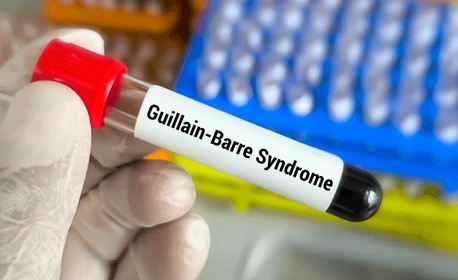Guillain-Barré Syndrome Cases Rising Due to Contaminated Water Supply by PMC: The rise in Guillain-Barré Syndrome (GBS) cases in Pune has raised concerns, especially in villages receiving untreated water from the Pune Municipal Corporation (PMC). Several areas, including Nanded, Nandoshi, Kirkitwadi, and parts of Dhayari, have been identified as hotspots for suspected GBS cases. The water supplied to these villages by the PMC is not adequately treated; instead, only bleaching powder is added to the water, which has sparked public concern about its quality and potential connection to the rise in neurological disease cases.
Follow the Pune Updates channel on WhatsApp:
https://whatsapp.com/channel/0029Vb2Z6498F2pHMwM9YA1S
These villages, which are now part of the PMC jurisdiction, were previously dependent on their village panchayat’s water supply system. The old wells in the Nanded village are still in use, where water from the Khadakwasla Dam is pumped in through pipelines and stored in these wells. The untreated water from these sources is distributed to Nanded, Nadoshi, Kirkhitwadi, and parts of Dhayari, which are now receiving untreated drinking water. Given the rising number of GBS symptoms reported in these areas, authorities have collected water samples for testing to examine its role in the disease’s spread.
The Pune Municipal Corporation’s Additional Commissioner, Prithviraj B. P., is set to conduct a site inspection of the Nanded well and surrounding areas to further investigate the situation.
Potential Contamination from Drainage Lines
Another concern raised is the possibility that the drainage lines near the Nanded village well may be mixing with the water supply. Authorities are currently working on cleaning these drainage lines to prevent further contamination.
Increase in Suspected GBS Cases in Pune
As of Tuesday, five GBS patients were confirmed within the PMC limits. However, two additional suspected cases were reported, bringing the total number of suspected GBS cases in the city to seven. Health experts are concerned about the potential spread of the disease, as more cases are being reported each day.
Campylobacter jejuni Infection Linked to GBS
In several of the GBS patients, testing has revealed the presence of Campylobacter jejuni, a bacterial infection commonly linked to contaminated food and water. According to the Neurological Society of Pune, contaminated water and food have been identified as potential causes of this infection, which can trigger Guillain-Barré Syndrome in susceptible individuals.
Sewage Contamination in Khadakwasla Dam
Further concerns have been raised about the Khadakwasla Dam, which supplies water to several areas in Pune. A large number of hotels, restaurants, farmhouses, and residential projects have been constructed near the backwaters of the dam. These developments discharge sewage directly into the dam without any treatment, causing the water to become contaminated. Despite multiple complaints, Pune Zilla Parishad, Panchayat Raj Department, PMRDA, and the Maharashtra Pollution Control Board (MPCB) have failed to take effective action, continuing to ignore the potential risks posed to public health.
Health Experts Urge Immediate Action
Health experts and local residents are calling for immediate attention and action from the relevant authorities to address the rising contamination and the potential link to GBS cases. The failure to implement proper water treatment processes and regulate sewage disposal around Khadakwasla Dam is seen as a major public health issue. As the situation continues to evolve, further investigations and improved water purification measures are urgently needed to safeguard the health of the affected communities.
Guillain-Barré Syndrome Cases on Rise in Pune: 59 Cases Reported, Children Most Affected
This development has raised serious concerns among Pune residents, urging authorities to act swiftly to prevent any more outbreaks of diseases linked to contaminated water sources in the city. (Guillain-Barré Syndrome Cases Rising Due to Contaminated Water Supply by PMC)



